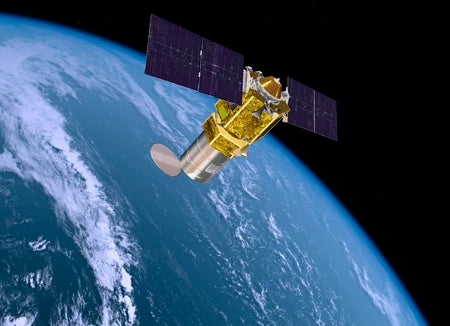
Boeing has introduced a new family of small satellite prototypes, known as Phantom Phoenix, designed to conduct intelligence, surveillance and reconnaissance (ISR) operations as well as science and weather missions.
Available in three configurations, the prototypes feature a common architecture, flight software and simplified payload integration options, which enhance their adaptability to specific mission requirements.
Boeing Phantom Works president Darryl Davis said: “Our customers need greater mission flexibility from smaller satellites that can be built more affordably, and delivered more quickly, without sacrificing quality.
”Building upon the success Boeing has had with expanding our 702 satellite family, we’ve rapidly developed a line of satellites to address the market between large geosynchronous spacecraft and nanosatellites,” Davis added.
Boeing Advanced Space & Intelligence Systems director Bruce Chesley said: ”The Phantom Phoenix prototypes are designed to give our commercial and government customers affordable, agile solutions to address the ever-evolving market and mission requirements.”
The satellite configurations include a 500kg – 1,000kg mid-class prototype designed for single and dual launch, a 180kg ESPA-class Phantom Phoenix that attaches to a common interstage adapter to enable launch of more than one satellite at a time, with up to six small satellites deployed during a single mission, thereby reducing launch costs.
How well do you really know your competitors?
Access the most comprehensive Company Profiles on the market, powered by GlobalData. Save hours of research. Gain competitive edge.

Thank you!
Your download email will arrive shortly
Not ready to buy yet? Download a free sample
We are confident about the unique quality of our Company Profiles. However, we want you to make the most beneficial decision for your business, so we offer a free sample that you can download by submitting the below form
By GlobalDataThird prototype configuration is a 4kg – 10kg nanosatellite that can provide affordable technology for science and weather missions.
Designed for all major launch vehicles, the Phantom Phoenix satellites will be capable of addressing mission requirements for reliability and service life at an affordable cost.
Additional features include tailored avionics, high autonomy, streamlined operations, low-risk integration, as well as selective redundancy options.
Boeing is scheduled to conduct initial technology development of the satellites in Huntington Beach, in California, US, in future.
Image: Phantom Phoenix satellites can be quickly and affordably manufactured and configured for specific missions. Photo: Courtesy of Boeing.




